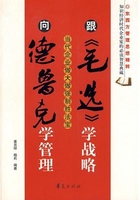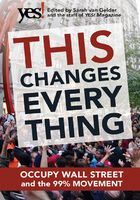"On the subject of slavery, he assured me that he had always been in favour of the emancipation of the negroes, and that in Virginia the feeling had been strongly inclining in the same direction, till the ill-judged enthusiasm (accounting to rancour) of the abolitionists in the North had turned the southern tide of feeling in the other direction. In Virginia, about thirty years ago, an ordinance for the emancipation of the slaves had been rejected by only a small majority, and every one fully expected at the next convention it would have been carried, but for the above cause. He went on to say that there was scarcely a Virginian new who was not glad that the subject had been definitely settled, though nearly all regretted that they had not been wise enough to do it themselves the first year of the war. Allusion was made by him to a conversation he had with a distinguished contryman of mine. He had been visiting a large slave plantation (Shirley) on the James River. The Englishman had told him that the working population were better cared for there than in any country he had ever visited, but that he must never expect an approval of the institution of slavery by England, or aid from her in any cause in which that question was involved. Taking these facts and the well-known antipathy of the mass of the English to the institution in consideration, he said he had never expected help from England. The people 'at the South' (as the expression is), in the main, though scarcely unanimously, seem to hold much the same language as General Lee with reference to our neutrality, and to be much less bitter than Northerners generally--who, I must confess, in my own opinion, have much less cause to complain of our interpretation of the laws of neutrality than the South. I may mention here, by way of parenthesis, that I was, on two separate occasions (one in Washington and once in Lexington), told that there were many people in the country who wished that General Washington had never lived and that they were still subjects of Queen Victoria; but I should certainly say as a rule the Americans are much too well satisfied with themselves for this feeling to be at all common. General Lee, in the course of this to me most interesting evening's seance, gave me many details of the war too long to put on paper, but, with reference to the small result of their numerous victories, accounted for it in this way: the force which the Confederates brought to bear was so often inferior in numbers to that of the Yankees that the more they followed up the victory against one portion of the enemy's line the more did they lay themselves open to being surrounded by the remainder of the enemy. He likened the operation to a man breasting a wave of the sea, who, as rapidly as he clears a way before him, is enveloped by the very water he has displaced. He spoke of the final surrender as inevitable owing to the superiority in numbers of the enemy. His own army had, during the last few weeks, suffered materially from defection in its ranks, and, discouraged by failures and worn out by hardships, had at the time of the surrender only 7,892 men under arms, and this little army was almost surrounded by one of 100,000.
They might, the General said with an air piteous to behold, have cut their way out as they had done before, but, looking upon the struggle as hopeless, I was not surprised to hear him say that he thought it cruel to prolong it. In two other battles he named (Sharpsburg and Chancellorsville, I think he said), the Confederates were to the Federals in point of numbers as 35,000 to 120,000 and 45,000 to 155,000 respectively, so that the mere disparity of numbers was not sufficient to convince him of the necessity of surrender; but feeling that his own army was persuaded of the ultimate hopelessness of the contest as evidenced by their defection, he took the course of surrendering his army in lieu of reserving it for utter annihilation.
"Turning to the political bearing of the important question at issue, the great Southern general gave me, at some length, his feelings with regard to the abstract right of secession. This right, he told me, was held as a constitutional maxim at the South. As to its exercise at the time on the part of the South, he was distinctly opposed, and it was not until Lincoln issued a proclamation for 75,000 men to invade the South, which was deemed clearly unconstitutional, that Virginia withdrew from the United States.
"We discussed a variety of other topics, and, at eleven o'clock when I rose to go, he begged me to stay on, as he found the nights full long.
His son, General Custis Lee, who had distinguished himself much during the war, but whom I had not the good fortune of meeting, is the only one of his family at present with him at Lexington, where he occupies the position of a professor in the Military Institute of Virginia.
This college had 250 cadets in it when the war broke out, General 'Stonewall' Jackson being one of the professors. At one moment in the war, when the Federal were advancing steadily up the Shenandoah Valley, these youths (from 16 to 22 years of age) were marched to join the Confederate Army, and did good service. In one battle at Newmarket, of which I shall have occasion to speak later in my letters, they distinguished themselves in a conspicuous way under the leadership of Colonel Shipp, who is still their commandant. By a brilliant charge, they contributed, in a great measure, to turn the tide of affairs, losing nine of their number killed and more than forty wounded. General Hunter, on a subsequent occasion, when occupying Lexington with a body of Federal troops, quartered his men in the Military Institute for several days, and, on leaving, had the building--a very handsome and extensive one--fired in numerous places, completely destroying all but the external walls, which now stand. The professors' houses stood in detached positions, and these, too, with the house of Mr. Letcher, a former governor of the State, he also burnt to the ground. The Washington college, the presidency of which General Lee now holds, they also ransacked, destroying everything it contained, and were preparing it for the flames, to which they were with difficulty restrained from devoting it by earnest representations of its strictly educational nature."














